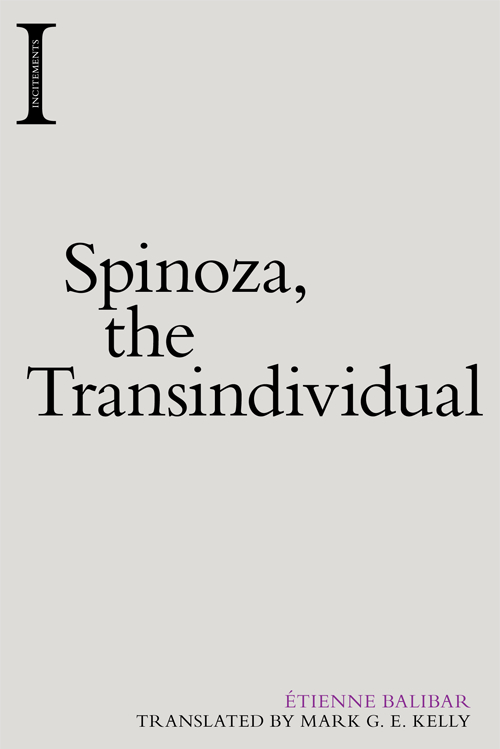
We were delighted to host philosopher Etienne Balibar in a fascinating online conversation about his book, Spinoza: The Transindividual. Published in our Incitements series, it is one of the most important books published on Spinoza in the last 30 years. Its four essays show the development of Balibar’s thought on Spinoza since the publication of Spinoza and Politics (1985).
Watch the globe-spanning event, which brought together speakers in Europe, the US and Australia. The conversation is chaired by series editors Peg Birmingham and Dimitris Vardoulakis.
Professor Jason Read also contributed a short video review of the book:
Want to keep up to date on things Philosophy? Sign up to our mailing list.
About the book
One of the most important books on Spinoza to appear in the last 30 years, written by one of the foremost living French philosophers
Étienne Balibar, one of the foremost living French philosophers, builds on his landmark work Spinoza and Politics with this exploration of Spinoza’s ontology. Balibar situates Spinoza in relation to the major figures of Marx and Freud as a precursor to the more recent French thinker Gilbert Simondon’s concept of the transindividual.
Presenting a crucial development in his thought, Balibar takes the concept of transindividuality beyond Spinoza to show it at work at both the individual and the collective level.
About the author
Étienne Balibar is one of the foremost living French philosophers. He holds positions as Anniversary Chair in Modern European Philosophy at Kingston University, Visiting Professor of French and Comparative Literature at Columbia University, Distinguished Professor Emeritus of French and Italian and Distinguished Professor Emeritus of Comparative Literature at the University of California, Irvine, and Emeritus Professor at the University of Paris, Nanterre. He initially rose to prominence as the student-collaborator of Louis Althusser, co-editing with him the collection Reading Capital, a global landmark in Marxist philosophy. Since then, he has written dozens of books and hundreds of articles, being particularly known for his writings on race, Europe, Spinoza, and political thought more generally, including his well-regarded books on Marx and Locke.






